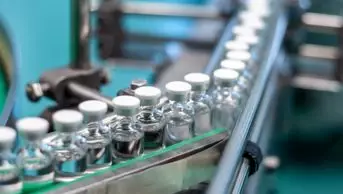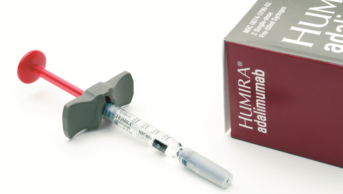
Shutterstock.com
The NHS in England will save £300m from the patent expiry of adalimumab, the most costly drug used in NHS hospitals, which is double previous estimates, NHS England has announced.
Adalimumab (Humira; AbbVie) came off patent on 16 October 2018 and is used to treat conditions including rheumatoid arthritis, Crohn’s disease and ulcerative colitis.
It was anticipated that biosimilar versions of adalimumab would be made available to NHS patients from December 2018, with savings for the NHS estimated at £150m per year by 2021.
But deals negotiated by NHS England with five manufacturers of adalimumab biosimilars mean the NHS is now set to save £300m — which it says is enough to pay for 11,700 more community nurses or 19,800 more breast cancer treatments for patients.
The deal with the five manufacturers, including the manufacturer of the originator medicine, AbbVie, means that hospitals will only have to pay a quarter of the more than £400m they currently spend each year on adalimumab.
The news also means that NHS England is on course to deliver on its ambition to cut between £200m and £300m from England’s annual medicines bill by 2021 through greater use of best value biological medicines, a year early.
Simon Stevens, chief executive of NHS England, said: “Harnessing the power of competition between drug companies, NHS England has now freed up hundreds of millions of pounds of savings to reinvest in patient care. By working with patients and front-line clinicians we’ve now successfully negotiated the biggest ever set of savings on what was the NHS’s most costly drug.”
More than 46,000 patients in England are currently prescribed adalimumab for severe hospital treated conditions, such as rheumatoid arthritis, inflammatory bowel disease and psoriasis.
Biosimilar versions are expected to be made available to NHS patients across England in December 2018, although use of the originator may also continue where clinically appropriate or where it is the best value.

